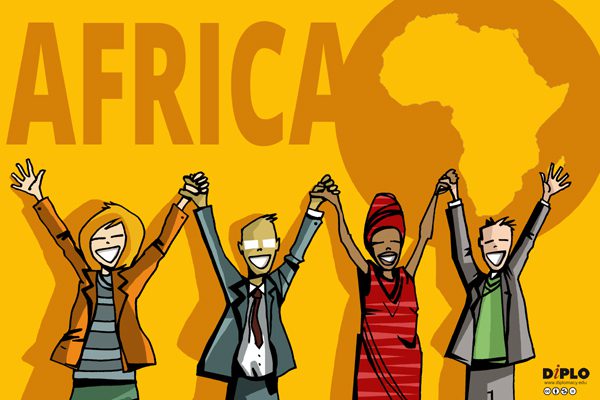Course Catalogue
Welcome to Diplo Academy where you can master diplomacy and digital policy with our online courses and programmes.
Featured
Diplo AI Campus
The Diplo AI Campus programme covers AI technical foundations, applications, and its societal impact through philosophical and cross-cultural lenses. It equips learners to tackle AI challenges and leverage its potential, preparing them for AI's global institutional transformation.
Open for application
AI Apprenticeship
The AI Apprenticeship online course is designed to immerse you in hands-on learning about generative AI (genAI) tools and how they shape the future of digital governance, diplomacy and international relations. The skills acquired will prepare you for the global institutional transformation brought on by AI technology.
15 Sep 25
Humanitarian Diplomacy
The course covers persuasion, advocacy, and negotiations in humanitarian diplomacy; how to mobilise public and governmental support; how to facilitate effective partnerships; tips and suggestions for communicating with different audiences, and more.
15 Sep 25
Negotiation Skills
Learn the practical skills to successfully prepare, undertake, and conclude negotiations in formal and informal settings, as well as how to choose appropriate negotiation strategies, deal with power imbalances, build effective partnerships, and more.
15 Sep 25
Advanced Diploma in Internet Governance
This ADIG online capacity development programme gives current and future internet policymakers a solid foundation in practical and diplomatic skills, as well as techniques necessary to engage effectively in global policy processes.
13 Oct 25
Cybersecurity
The course analyses cybersecurity challenges, and the roles diplomacy, legal instruments, policies and other factors play in addressing cyberthreats, including cybersecurity issues; online crime, warfare, and terrorism; e-commerce; cybersecurity; and cybersecurity strategies and instruments.
13 Oct 25
Science Diplomacy
Find out how science and diplomacy should work together to solve the world’s biggest challenges, leveraging scientific collaboration to address global challenges and build international relationships, while also utilising diplomatic efforts to foster scientific cooperation. The course is organised in cooperation with the Geneva Science-Policy Interface (GSPI).
13 Oct 25
Sustainable Development Diplomacy
Learn how to assess development needs and cooperation opportunities, select appropriate donors, facilitate cooperation among partners, implement programmes and projects, and foster win-win aspects for developed and developing countries.
13 Oct 25
Artificial Intelligence
The course is ideal for practising diplomats and civil servants, and covers AI governance actors and forums; the technical, regulative and ethical aspects of AI; the impact on security, commerce, finance, and human rights; the drafting of national and institutional AI strategies; and more.
16 Feb 26
Multilateral Diplomacy
The specialised course covers multilateral actors and their roles; frameworks, rules, and methods, with a focus on the UN system; past, current, and future developments affecting multilateral systems; and much more.
16 Feb 26
Public Diplomacy
Learn the goals and methods of public diplomacy, its power and limitations, as well as public diplomacy best practices, how to build national brands, how to measure strategy effectiveness, and how to identify workable tools and methods.
16 Feb 26
21st Century Diplomacy
The course covers the roles of new diplomatic actors, the new ways in which countries interact, issues that are changing the international agenda, the knowledge and skills practitioners need to succeed, and much more.
04 May 26
Diplomatic Theory and Practice
Learn about the techniques for securing agreements, negotiation stages and their objectives, elements of successful mediation, advantages and disadvantages of different diplomatic methods, and the shape and functions of the contemporary diplomatic system. This offers hope even when the clouds are at their darkest.
04 May 26
E-Diplomacy
Learn the dos and don’ts of online tools for diplomats, including how to promote your country's foreign policy goals via social media, how online networking works, how to avoid cyberattacks and security risks, and how to plan and run online diplomatic campaigns.
04 May 26
Tech Diplomacy
This specialised course focuses on the interaction between diplomats and the tech sector, and highlights the practices of various countries. The aim of the course is to provide practitioners with the skills to take part in this new growing field.
04 May 26
Bilateral Diplomacy
The specialised course covers the skills and tools for analysing international affairs, how various concepts operate in the real world, how to advance your country's foreign interests, and much more.
20 Jul 26
Diplomatic Law: Privileges and Immunities
The course covers the legal basis of privileges and immunities, the theoretical justifications for privileges and immunities, and the use and abuse of privileges and immunities.
20 Jul 26
Internet Technology and Policy
The course discusses the use and development of internet technology, and covers ethical, legal, and policy issues, encryption technology and privacy, emerging technologies, and much more.
20 Jul 26
Economic Diplomacy
Learn how economic diplomacy is connected to other diplomatic branches; trends in economic exchanges, especially in international trade; the purposes of economic sanctions; and much more.
12 Oct 26
Master in Contemporary Diplomacy
Note: MA 2026 programme: Deferred
/ MA 2027 programme: TBC. The accredited programme guides working professionals through the challenges of contemporary diplomacy, and offers a specialisation in internet governance, equipping internet policymakers with practical skills for both regional and international diplomacy.
Available on demand
Capacity Development in Multilateral Diplomacy for Africa
Learn how to increase the capacity of African states to participate efficiently in multilateral diplomacy; strengthen functional links between them and International Geneva; how to use e-tools for overcoming geographical, financial, and human resource limitations; and more.
Capacity Development in Multilateral Diplomacy for the Caribbean
Learn how to increase the capacity of Caribbean states to participate efficiently in multilateral diplomacy; strengthen functional links between them and International Geneva; how to use e-tools for overcoming geographical, financial, and human resource limitations; and more.
Capacity Development
Learn how to design, plan, implement, and assess development initiatives, develop capacity development strategies, select the appropriate methods and tools, formulate capacity goals, evaluate processes, and more.
Children and Mobile Technology
Learn how ICTs can support the rights of children, what we know about how children use mobile technologies, how to mitigate the risks they face, the roles regulation and legislation play in online protection, and the solutions to combatting child online sexual exploitation.
Consular and Diaspora Diplomacy
Learn how consular diplomacy connects to related subjects, including diaspora outreach, migration, and labour affairs; how to effectively organise and plan work at a consular post in a mission abroad; how to plan and operationalise a diaspora policy; and more.
Cybersecurity Diplomacy
Learn how state-supported cyberattacks and mass espionage operations are conducted, what is considered cyberwar, which agreements are preventing an international cyber conflict, and how businesses and organisations are being used as weapons for attacking others.
Cybersecurity for SEE
The course aims to increase cybersecurity capacities of public institutions and the private and civil sectors in Southeast Europe by providing policy training for officials and professionals.
Cycle de formation (en ligne) sur l‘introduction à la gouvernance de l’Internet
ILa gouvernance de l’Internet (GI) est de plus en plus prépondérante dans le travail des diplomates et des fonctionnaires publics. La cybersécurité, la surveillance en ligne font partie des sujets les plus abordés et débattus lors des discussions internationales […]
Data Governance in the Digital Economy
Master the complexity of data governance by understanding its technical, economic, legal, policy, and geopolitical aspects, including development strategies, negotiations in International Geneva, legal instruments and initiatives, and much more.
Decoding Disinformation
Master the skills for balancing authority with attentiveness, including how to assert your position confidently while remaining respectful, disagree without conflict, and stay composed under pressure.
Digital Commerce
This course provides an interdisciplinary coverage of digital commerce, from both digital and trade perspectives. It builds the knowledge and capacity of participants to engage in digital commerce-related negotiations and discussions on the multilateral and bilateral levels.
Digital Policy and Diplomacy Geneva
The course is designed for permanent missions in Geneva, and covers the fields of digital policy, cooperation, and diplomacy, including digital policy, emerging technologies, network neutrality, property rights, privacy protection, cybersecurity, and artificial Intelligence.
Diplomacy of Small States
The course analyses the role of small states in the international order, multilateral and regional grouping tactics, approaches to safeguarding their territorial integrity, and much more.
Diplomatic Communication
Master the skills for balancing authority with attentiveness, including how to assert your position confidently while remaining respectful, disagree without conflict, and stay composed under pressure.
Diplomatic Protocol and Etiquette
Learn how to appropriately engage in conversations, prepare invitations for various events and different levels of formality, plan and prepare events, and much more.
Foundations in Education Diplomacy
Learn how to strengthen functional links between states and International Geneva to fulfil the right to education for children; how to overcome geographical, financial, and human resource limitations; and much more.
Digital Policy and Diplomacy New York
The course helps participants understand and follow the digital policy aspects of UN discussions and negotiations, and is designed to benefit diplomats who follow internet governance and other internet-related policy fields.
Intro to Internet Governance
Master internet governance policies, processes, actors, and issues, including cybersecurity, network neutrality, intellectual property rights, privacy protection, social network policies, and more.
Language and Diplomacy
Master the skills and tools for securing agreements and changing diplomatic outcomes, including creating effective texts and visual messages; how to properly analyse and predict the influence of treaties, speeches, and advertising; and much more.
Nexus: Breaking the silos between humanitarian, development, and peace activities
Learn how to apply the humanitarian–development–peace (HDP) nexus in practice, design strategic interventions and funding proposals, and analyse case studies to effectively meet human needs, mitigate vulnerabilities, and achieve sustainable peace.
Online Meetings and Conferences
Online meetings have become essential amid the pandemic, prompting the need for effectiveness in their utilization. As international travel restrictions persist, they have evolved into a crucial tool for various entities. While online meetings are desired, a balance incorporating in-person meetings is sought. The future of meetings lies in transitioning to hybrid formats blending online and onsite interactions due to the significant impact on diplomacy, global governance, and event cancellations.










































